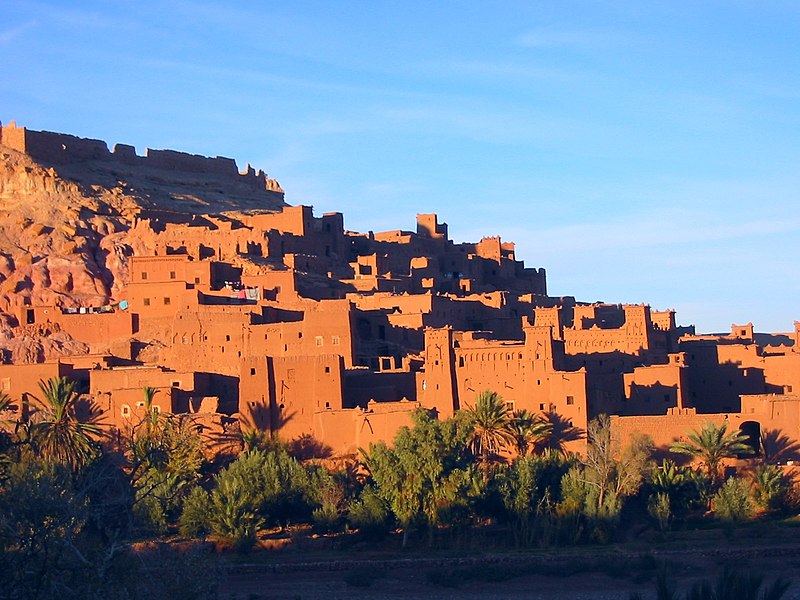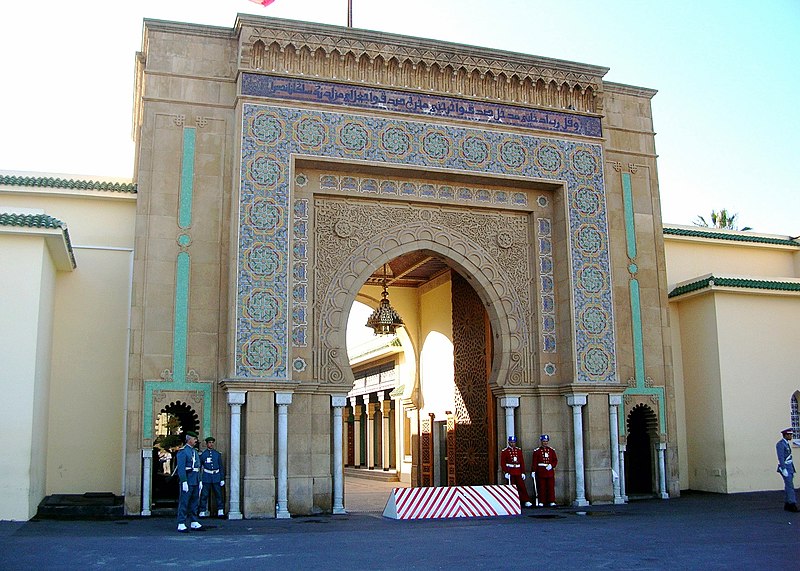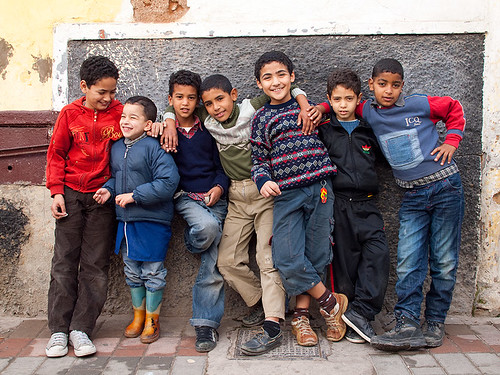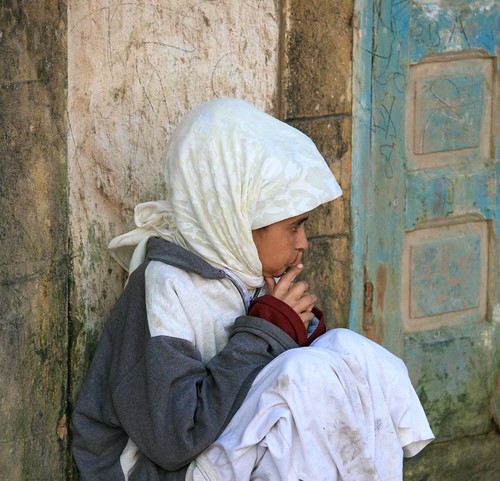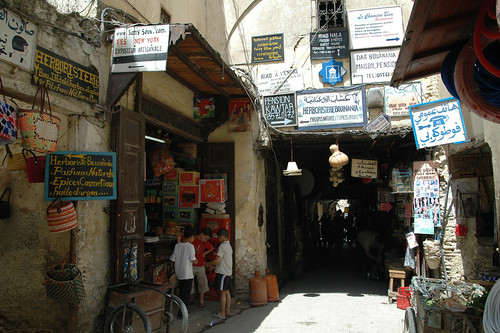Difference between revisions of "Adopting from Morocco"
(→Hague Convention Information) |
m (→SOURCE) |
||
| (8 intermediate revisions by 2 users not shown) | |||
| Line 1: | Line 1: | ||
| − | {{#eimage:https://www.cia.gov/library/publications/the-world-factbook/graphics/flags/large/mo-lgflag.gif|410x579px|thumb|'''The official flag | + | {{#eimage:https://www.cia.gov/library/publications/the-world-factbook/graphics/flags/large/mo-lgflag.gif|410x579px|thumb|'''The official flag.'''<BR/>Source: cia.gov.}} |
| − | {{#eimage:https://www.cia.gov/library/publications/the-world-factbook/graphics/maps/mo-map.gif|410x579px|thumb|'''Map | + | {{#eimage:https://www.cia.gov/library/publications/the-world-factbook/graphics/maps/mo-map.gif|410x579px|thumb|'''Map.'''<BR/>Source: cia.gov.}} |
| − | {{#eimage:https://www.cia.gov/library/publications/the-world-factbook/graphics/locator/afr/mo_large_locator.gif|410x579px|thumb|'''Map | + | {{#eimage:https://www.cia.gov/library/publications/the-world-factbook/graphics/locator/afr/mo_large_locator.gif|410x579px|thumb|'''Map.'''<BR/>Source: cia.gov.}} |
| − | {{#eimage:http://upload.wikimedia.org/wikipedia/commons/thumb/2/2a/Kasbahs_in_A%C3%AFt_Benhaddou.JPG/800px-Kasbahs_in_A%C3%AFt_Benhaddou.JPG|410x579px|thumb|'''The Kasbah of Aït Benhaddou | + | {{#eimage:http://upload.wikimedia.org/wikipedia/commons/thumb/2/2a/Kasbahs_in_A%C3%AFt_Benhaddou.JPG/800px-Kasbahs_in_A%C3%AFt_Benhaddou.JPG|410x579px|thumb|'''The Kasbah of Aït Benhaddou.'''<BR/>Source: Wikipedia.org.}} |
| − | {{#eimage:http://upload.wikimedia.org/wikipedia/commons/thumb/c/c8/Royal_Palace%2C_Rabat.jpg/800px-Royal_Palace%2C_Rabat.jpg|410x579px|thumb|'''Royal Palace, Rabat | + | {{#eimage:http://upload.wikimedia.org/wikipedia/commons/thumb/c/c8/Royal_Palace%2C_Rabat.jpg/800px-Royal_Palace%2C_Rabat.jpg|410x579px|thumb|'''Royal Palace, Rabat.'''<BR/>Source: Wikipedia.org.}} |
| − | {{#eimage:https://farm6.staticflickr.com/5096/5429125249_830e4eec6d.jpg|410x579px|thumb|'''Children in Sale | + | {{#eimage:https://farm6.staticflickr.com/5096/5429125249_830e4eec6d.jpg|410x579px|thumb|'''Children in Sale..'''<BR/>Source: flickr.com.}} |
| − | + | ||
| − | + | ||
{{#eimage:http://upload.wikimedia.org/wikipedia/commons/thumb/8/8c/Maroc_%2C_dune_de_Chegaga.JPG/800px-Maroc_%2C_dune_de_Chegaga.JPG|410x579px|thumb|'''The Moroccan Sahara.'''<BR/>Source: Wikipedia.org.}} | {{#eimage:http://upload.wikimedia.org/wikipedia/commons/thumb/8/8c/Maroc_%2C_dune_de_Chegaga.JPG/800px-Maroc_%2C_dune_de_Chegaga.JPG|410x579px|thumb|'''The Moroccan Sahara.'''<BR/>Source: Wikipedia.org.}} | ||
| Line 17: | Line 15: | ||
{{#eimage:https://farm3.staticflickr.com/2786/4260760150_13a60f6133.jpg|410x579px|thumb|'''A Moroccan girl.'''<BR/>Source: flickr.com.}} | {{#eimage:https://farm3.staticflickr.com/2786/4260760150_13a60f6133.jpg|410x579px|thumb|'''A Moroccan girl.'''<BR/>Source: flickr.com.}} | ||
| − | {{#eimage: | + | {{#eimage:https://farm5.staticflickr.com/4018/4715422586_30891a4262.jpg|410x579px|thumb|'''Children in an alleyway in Fes.'''<BR/>Source: flickr.com.}} |
| − | {{#eimage: | + | {{#eimage:https://www.cia.gov/library/publications/the-world-factbook/photo_gallery/mo/images/MO_002.jpg|410x579px|thumb|'''A large leather tannery in Fes.'''<BR/>Source: cia.gov.}} |
| − | |||
| − | + | '''Notice: As of July 14, 2014, all individuals and agencies facilitating [[international]] adoptions must be in compliance with the Intercountry [[Universal Accreditation Act]].''' | |
| + | The information contained on this website is for educational purposes only and is not intended to be a substitute for professional legal advice. Always seek the advice of a licensed and qualified professional. While the content of this website is frequently updated, information changes rapidly and therefore, some information may be out of date, and/or contain inaccuracies, omissions or typographical errors. | ||
| − | |||
| − | + | =About Morocco= | |
| − | + | In 788, about a century after the Arab conquest of North Africa, a series of Moroccan Muslim dynasties began to rule in [[Morocco]]. In the 16th century, the Sa'adi monarchy, particularly under Ahmad al-MANSUR (1578-1603), repelled foreign invaders and inaugurated a golden age. The Alaouite Dynasty, to which the current Moroccan royal family belongs, dates from the 17th century. In 1860, [[Spain]] occupied northern [[Morocco]] and ushered in a half century of trade rivalry among European powers that saw [[Morocco]]'s sovereignty steadily erode; in 1912, the French imposed a protectorate over the country. A protracted independence struggle with [[France]] ended successfully in 1956. To learn more please read [[About Morocco]]. | |
| − | + | =Morocco Adoption Alert= | |
| + | There have been multiple [[adoption]] alerts for [[Morocco]]. To learn more please read the [[Morocco Adoption Alert]] page. | ||
| − | |||
| + | =Hague Convention Information= | ||
| + | [[Morocco]] is not party to the Hague Convention on Protection of Children and Co-operation in Respect of Intercountry [[Adoption]] ([http://adoption.state.gov/hague_convention/overview.php Hague Adoption Convention]). To learn more please read about [[Morocco and the Hague Convention]]. | ||
| − | |||
| − | + | =Who Can Adopt= | |
| + | There are multiple guidelines for [[Who Can Adopt from Morocco|who can adopt from Morocco]]. To learn more about these guidelines please read [[Who Can Adopt from Morocco]]. | ||
| − | |||
| + | =Who Can Be Adopted= | ||
| − | U.S. | + | In addition to U.S. immigration requirements, [[Morocco]] has specific requirements that a child must meet in order to be eligible for Kafala [[guardianship]]. To learn more please read about [[Who Can Be Adopted from Morocco]]. |
| − | + | =How to Adopt= | |
| − | = | + | ==Adoption Authority== |
| − | + | '''[[Morocco]]’s [[Adoption]] Authority''' | |
| + | |||
| + | Ministry of Justice (Le Ministère de la Justice et des Libertés, Place el Mamounia, Rabat, [[Morocco]]) | ||
| − | + | ==The Process== | |
| + | The process for adopting a child from [[Morocco]] generally includes the following steps: | ||
| − | |||
| + | # Choose an [[Adoption Service Provider|adoption service provider]] | ||
| + | # Apply to be found eligible to obtain legal [[guardianship]] | ||
| + | # Be matched with a child | ||
| + | # Obtain legal and physical [[custody]] of the child in [[Morocco]] | ||
| + | # Apply for the child to be found eligible for [[orphan]] status | ||
| + | # Bring your child home | ||
| − | To | + | To learn more about this process please read [[How to Adopt from Morocco]]. |
| − | + | =Traveling Abroad= | |
| − | + | '''Applying for Your U.S. Passport''' | |
| − | + | A valid U.S. passport is required to enter and leave [[Morocco]]. Only the U.S. Department of State has the authority to grant, issue, or verify U.S. passports. Getting or renewing a passport is easy. To learn more please read about [[Traveling Abroad in Morocco]]. | |
| − | |||
| − | = | + | =After Adoption= |
| − | + | '''Post-Placement Reporting Requirements''' | |
| + | |||
| + | Although [[Morocco]] does not generally have post-placement reporting requirements, an individual Kafala court may impose certain post placement obligations on the prospective [[Adoptive Parents|adoptive parents]] in the Kafala order. If this is the case, we strongly urge you to comply with those obligations in a timely manner. Your cooperation will contribute to that country’s positive experiences with U.S. citizen parents. | ||
| − | + | '''Post-[[Adoption]] Resources''' | |
| + | |||
| + | Many [[Adoptive Parents|adoptive parents]] find it important to find support after the [[adoption]]. There are many public and private nonprofit post-[[adoption]] services available for children and their families. There are also numerous adoptive family support groups and [[adoptee]] [[organizations]] active in the United States that provide a network of options for adoptees who seek out other adoptees from the same country of origin. Take advantage of all the resources available to your family, whether it is another adoptive family, a support group, an advocacy organization, or your religious or community services. | ||
| − | |||
| − | + | Here are some places to start your support group search: | |
| − | |||
| − | + | [https://www.childwelfare.gov/ Child Welfare Information Gateway] | |
| − | + | [http://www.nacac.org/ North American Council on Adoptable Children] | |
| − | + | [http://www.adoptionservices.org/adoption_support_groups_family/index.htm Adoption Services Support Groups for Adopting Persons] | |
| − | |||
| + | '''NOTE:''' Inclusion of non-U.S. government links does not imply endorsement of contents. | ||
| − | |||
| − | + | =Contact Information= | |
| − | ''' | + | '''U.S. Consulate General''' |
| − | + | ||
| − | ''' | + | |
| − | + | 8, Boulevard Moulay Youssef, Casablanca | |
| + | Tel: +212 (0) 522-264-550 | ||
| + | Fax: +212 (0) 522-204-127 | ||
| + | Email: ivcasablanca@state.gov | ||
| + | Internet: [http://morocco.usembassy.gov/casablanca.html U.S. Consulate General] | ||
| − | |||
| − | ''' | + | '''[[Morocco]] ’s Kafala [[Guardianship]] Authority:''' |
| − | + | Ministry of Justice | |
| + | Le Ministère de la Justice et des Libertés | ||
| + | Place el Mamounia, Rabat, [[Morocco]] | ||
| + | Tel: +212 (0) 537-732-941 to 946 | ||
| + | Fax: +212 (0) 537-734-725 | ||
| + | Internet: [http://justice.gov.ma Ministery of Justice] (currently, in Arabic only) | ||
| − | + | '''Embassy of [[Morocco]] in the United States of America''' | |
| + | |||
| + | 1601 21st Street, NW [[Washington]], DC 20009 | ||
| + | Tel: 202-462-7979 | ||
| + | Fax: 202-265-0161 | ||
| + | Internet: [http://embassyofmorocco.us/ Embassy of Morocco] | ||
| − | |||
| − | + | [[Morocco]] also has a consulate located in [[New York]] City at the following address: | |
| − | + | 10 East 40th Street, | |
| + | [[New York]], NY 10016 | ||
| + | (212) 758-2625 | ||
| + | Internet: [http://moroccanconsulate.com/ Moroccan Consulate NY] | ||
| − | |||
| + | '''Office of Children’s Issues''' | ||
| − | ' | + | CA/OCS/CI |
| + | SA-17, 9th Floor | ||
| + | [[Washington]], D.C. 20522-1709 | ||
| + | Tel: 1-888-407-4747 | ||
| + | Email: AskCI@state.gov | ||
| + | Internet: [http://adoption.state.gov Office of Children's Issues] | ||
| − | |||
| + | '''U.S. Citizenship and Immigration Services (USCIS)''' | ||
| − | + | For questions about immigration procedures: | |
| + | USCIS National Customer Service Center (NCSC) | ||
| + | Tel: 1-800-375-5283 (TTY 1-800-767-1833) | ||
| + | Internet: [http://uscis.gov USCIS] | ||
| − | |||
| − | |||
| − | |||
| − | |||
| − | |||
| − | |||
| − | |||
| − | |||
| + | For questions about filing a Form [[I-600A]] or [[I-600]] petition: | ||
| + | USCIS National Benefits Center | ||
| + | Tel: 1-877-424-8374 (toll free); 1-816-251-2770 (local) | ||
| + | Email: NBC.Adoptions@uscis.dhs.gov | ||
==SOURCE== | ==SOURCE== | ||
| − | '''Intercountry [[Adoption]], Bureau of Consular Affairs. U.S. Department of State Country Information''' | + | '''Intercountry [[Adoption]], Bureau of Consular Affairs. U.S. Department of State Country Information''' adoption.state.gov/country_information/country_specific_info.php?country-select=morocco |
[[Category: International Adoption]] | [[Category: International Adoption]] | ||
Latest revision as of 05:37, 19 February 2018
Notice: As of July 14, 2014, all individuals and agencies facilitating international adoptions must be in compliance with the Intercountry Universal Accreditation Act.
The information contained on this website is for educational purposes only and is not intended to be a substitute for professional legal advice. Always seek the advice of a licensed and qualified professional. While the content of this website is frequently updated, information changes rapidly and therefore, some information may be out of date, and/or contain inaccuracies, omissions or typographical errors.
Contents
About Morocco
In 788, about a century after the Arab conquest of North Africa, a series of Moroccan Muslim dynasties began to rule in Morocco. In the 16th century, the Sa'adi monarchy, particularly under Ahmad al-MANSUR (1578-1603), repelled foreign invaders and inaugurated a golden age. The Alaouite Dynasty, to which the current Moroccan royal family belongs, dates from the 17th century. In 1860, Spain occupied northern Morocco and ushered in a half century of trade rivalry among European powers that saw Morocco's sovereignty steadily erode; in 1912, the French imposed a protectorate over the country. A protracted independence struggle with France ended successfully in 1956. To learn more please read About Morocco.
Morocco Adoption Alert
There have been multiple adoption alerts for Morocco. To learn more please read the Morocco Adoption Alert page.
Hague Convention Information
Morocco is not party to the Hague Convention on Protection of Children and Co-operation in Respect of Intercountry Adoption (Hague Adoption Convention). To learn more please read about Morocco and the Hague Convention.
Who Can Adopt
There are multiple guidelines for who can adopt from Morocco. To learn more about these guidelines please read Who Can Adopt from Morocco.
Who Can Be Adopted
In addition to U.S. immigration requirements, Morocco has specific requirements that a child must meet in order to be eligible for Kafala guardianship. To learn more please read about Who Can Be Adopted from Morocco.
How to Adopt
Adoption Authority
Ministry of Justice (Le Ministère de la Justice et des Libertés, Place el Mamounia, Rabat, Morocco)
The Process
The process for adopting a child from Morocco generally includes the following steps:
- Choose an adoption service provider
- Apply to be found eligible to obtain legal guardianship
- Be matched with a child
- Obtain legal and physical custody of the child in Morocco
- Apply for the child to be found eligible for orphan status
- Bring your child home
To learn more about this process please read How to Adopt from Morocco.
Traveling Abroad
Applying for Your U.S. Passport
A valid U.S. passport is required to enter and leave Morocco. Only the U.S. Department of State has the authority to grant, issue, or verify U.S. passports. Getting or renewing a passport is easy. To learn more please read about Traveling Abroad in Morocco.
After Adoption
Post-Placement Reporting Requirements
Although Morocco does not generally have post-placement reporting requirements, an individual Kafala court may impose certain post placement obligations on the prospective adoptive parents in the Kafala order. If this is the case, we strongly urge you to comply with those obligations in a timely manner. Your cooperation will contribute to that country’s positive experiences with U.S. citizen parents.
Post-Adoption Resources
Many adoptive parents find it important to find support after the adoption. There are many public and private nonprofit post-adoption services available for children and their families. There are also numerous adoptive family support groups and adoptee organizations active in the United States that provide a network of options for adoptees who seek out other adoptees from the same country of origin. Take advantage of all the resources available to your family, whether it is another adoptive family, a support group, an advocacy organization, or your religious or community services.
Here are some places to start your support group search:
Child Welfare Information Gateway
North American Council on Adoptable Children
Adoption Services Support Groups for Adopting Persons
NOTE: Inclusion of non-U.S. government links does not imply endorsement of contents.
Contact Information
U.S. Consulate General
8, Boulevard Moulay Youssef, Casablanca Tel: +212 (0) 522-264-550 Fax: +212 (0) 522-204-127 Email: ivcasablanca@state.gov Internet: U.S. Consulate General
Morocco ’s Kafala Guardianship Authority:
Ministry of Justice Le Ministère de la Justice et des Libertés Place el Mamounia, Rabat, Morocco Tel: +212 (0) 537-732-941 to 946 Fax: +212 (0) 537-734-725 Internet: Ministery of Justice (currently, in Arabic only)
Embassy of Morocco in the United States of America
1601 21st Street, NW Washington, DC 20009 Tel: 202-462-7979 Fax: 202-265-0161 Internet: Embassy of Morocco
Morocco also has a consulate located in New York City at the following address:
10 East 40th Street, New York, NY 10016 (212) 758-2625 Internet: Moroccan Consulate NY
Office of Children’s Issues
CA/OCS/CI SA-17, 9th Floor Washington, D.C. 20522-1709 Tel: 1-888-407-4747 Email: AskCI@state.gov Internet: Office of Children's Issues
U.S. Citizenship and Immigration Services (USCIS)
For questions about immigration procedures: USCIS National Customer Service Center (NCSC) Tel: 1-800-375-5283 (TTY 1-800-767-1833) Internet: USCIS
For questions about filing a Form I-600A or I-600 petition:
USCIS National Benefits Center
Tel: 1-877-424-8374 (toll free); 1-816-251-2770 (local)
Email: NBC.Adoptions@uscis.dhs.gov
SOURCE
Intercountry Adoption, Bureau of Consular Affairs. U.S. Department of State Country Information adoption.state.gov/country_information/country_specific_info.php?country-select=morocco



